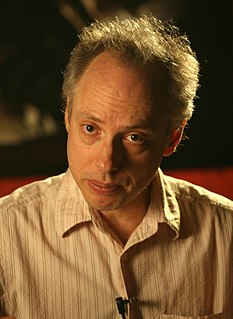A Quote by William P. Young
Somehow the pain, the losses, the hurt, the bad, God is able to transform these into something they could have never been, icons and monuments of grace and love. It is the deep mystery how wounds and scars can become precious, or a ravaging and terrifying cross the essential symbol of relentless affection.” “Is it worth it?” whispered Tony. “Wrong question, son. There is no ‘it.’ The question is and has always been, ‘Are you worth it?’ and the answer is and always, ‘Yes!’
Quote Topics
Able
Affection
Always
And Love
Answer
Bad
Become
Been
Could
Cross
Deep
Essential
God
God Is Able
Grace
Grace And Love
How
Hurt
Icons
Is It Worth It
Losses
Love
Monuments
Mystery
Never
Pain
Precious
Question
Relentless
Scars
Somehow
Something
Son
Symbol
Terrifying
Tony
Transform
Worth
Worth It
Wounds
Wounds And Scars
Wrong
Yes
Related Quotes
At heart, I have always been a coper, I've mostly been able to walk around with my wounds safely hidden, and I've always stored up my deep depressive episodes for the weeks off when there was time to have an abbreviated version of a complete breakdown. But in the end, I'd be able to get up and on with it, could always do what little must be done to scratch by.
You've always asked me to wait, as if we had time in abundance. But time is too precious, Perry. We've wasted years, when we could have been with each other. Don't you understand how much even one day of loving each other is worth? Some people are separated by distances they can never cross. All they can do is dream about each other for a lifetime, never having what they want most. How foolish, how wasteful to have love within your reach and not take it!" She clamped her teeth on her trembling bottom lip to steady herself
But in the end, science does not provide the answers most of us require. Its story of our origins and of our end is, to say the least, unsatisfactory. To the question, "How did it all begin?", science answers, "Probably by an accident." To the question, "How will it all end?", science answers, "Probably by an accident." And to many people, the accidental life is not worth living. Moreover, the science-god has no answer to the question, "Why are we here?" and, to the question, "What moral instructions do you give us?", the science-god maintains silence.
What makes me put pen to paper? You know, that's the million-dollar question. I've been writing since I've been reading. It's not a question I think that's even meant to be answered, but it's something you always seek to discover the answer to. And the process of filmmaking is one of discovery, and self-discovery at that. Pleasure... it's not exactly what I would call fun, but it's absorbing.
I would like a world full of love. But remember, that love has no opposite to it. It is simply because you inside yourself have been able, through awareness, to transform your hate into love. Even to say that you have been able to transform it is not right, but what else to do with language? Whatever you say, something is wrong in saying it, something goes wrong in saying it. The fact is, awareness itself transforms your hate into love, not that you transform it. Your work and function is simply to remain aware. Don't let anything happen in your life without awareness.
Science tries to answer the question: "How?" How do cells act in the body? How do you design an airplane that will fly faster thansound? How is a molecule of insulin constructed? Religion, by contrast, tries to answer the question: "Why?" Why was man created? Why ought I to tell the truth? Why must there be sorrow or pain or death? Science attempts to analyze how things and people and animals behave; it has no concern whether this behavior is good or bad, is purposeful or not. But religion is precisely the quest for such answers: whether an act is right or wrong, good or bad, and why.



































